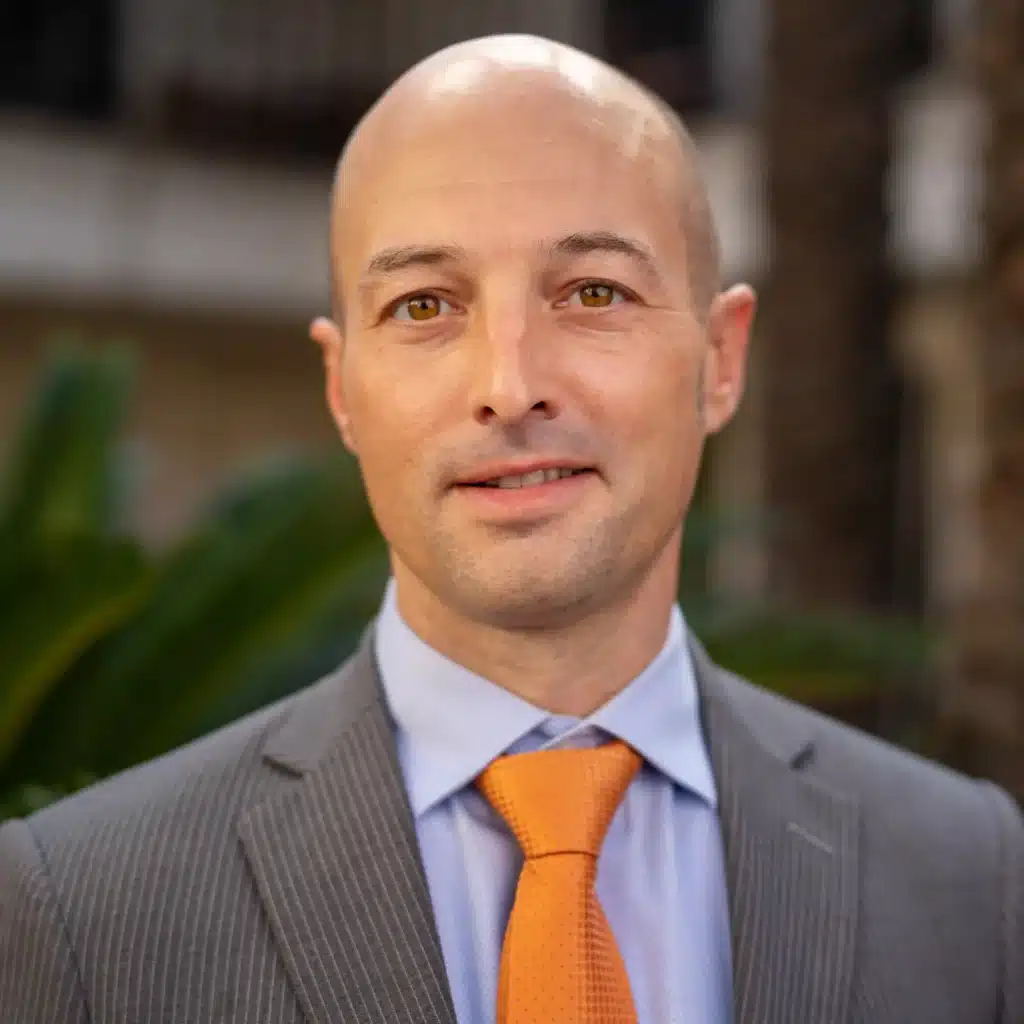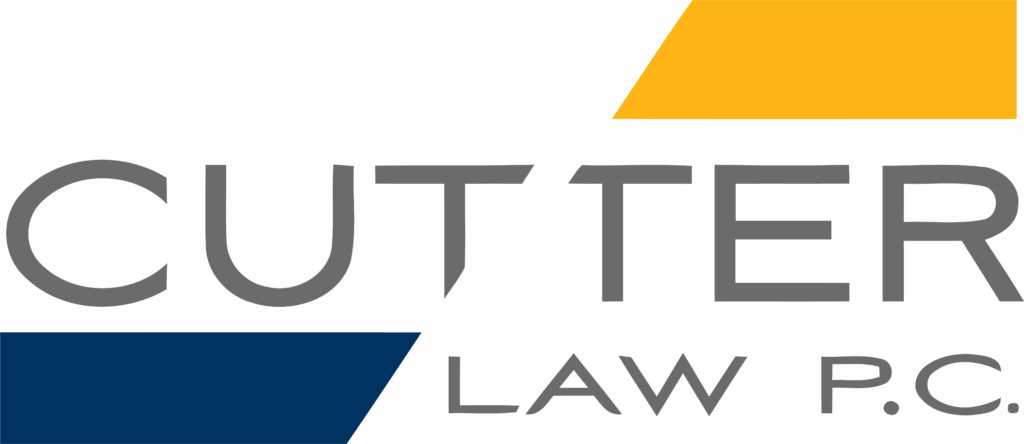Can You Get Compensation If the Accident Was Your Fault in California?
If you were involved in a car accident that was partly your fault, you may be able to recover damages. California operates on a pure comparative negligence standard, allowing you to recover some compensation as long as your share of the fault for the accident is less than 100 percent.

“If the accident was partially your fault, that’s not necessarily disqualifying at all in California.”
At Cutter Law, our attorneys can determine whether you were actually at fault and recover compensation for you even if you share some blame for the accident.
- What Are Your Legal Rights in a Comparative Negligence State Like California?
- How a Defendant Can Prove Fault Against You
- Who Establishes the Percentage of Fault Each Party Is Assigned?
- What Damages Can You Recover Even If You’re At Fault?
- How Cutter Law Can Help You Pursue a Claim Even If You’re at Fault
What Are Your Legal Rights in a Comparative Negligence State Like California?

“In other states, if you as the injured person are 51 percent at fault. You recover nothing. In California, we found that that’s an unfair outcome.”
California followed a contributory negligence rule until 1975 when the state Supreme Court rejected it in favor of pure comparative negligence. Under contributory negligence, you were ineligible for compensation if you shared any fault for the accident, even as little as one percent. California’s pure comparative negligence law is essentially the opposite, allowing you to recover compensation even if you were 99 percent at fault for the accident.
However, your compensation will be reduced in proportion to your share of the fault. If you are 99 percent responsible for the accident, you would only be eligible to recover one percent of the damages. In this scenario, if your total damages are $100,000, you could recover $1,000.

“Let’s say your case is worth $1 million, and it was half your fault. Then your award would be cut down to $500,000. That’s very generally speaking.”
How a Defendant Can Prove Fault Against You
If the defendants assert that you are partly at fault, they must meet the same burden of proof you must meet in your case against them. As laid out in the 2024 California Civil Jury Instructions, defendants must prove both of the following:
- You were negligent.
- Your negligence substantially contributed to your injuries.
Insurance companies have a vested interest in finding you at fault to reduce the compensation they must pay.
It is common for an insurance company to pressure you to admit fault and use your statements against you to convince a court to reduce your compensation. No matter what the insurance company tells you, the most reliable way to determine whether you share blame for the accident is to work with our experienced California car accident lawyers.
How Our California Car Accident Lawyers Can Help Regardless of Fault
When you choose our dedicated team of car accident lawyers, we will investigate your accident with the help of accident reconstructionists, forensic analysts, and automotive experts who can identify all the factors that contributed to your accident and your injuries.
We may be able to clear you of fault altogether. Even if we find that your actions contributed to the accident, your share of the fault may be significantly lower than what the insurance company asserted. We will use our evidence as leverage to negotiate the settlement you deserve or fight for you in court if the insurance company refuses to compensate you fairly.
Who Establishes the Percentage of Fault Each Party Is Assigned?

“Here in California, we have juries to decide who is responsible. The jury would ultimately determine how much you were at fault.”
In many states, the judge determines the percentage of fault. In California, however, if your case goes to trial, the jury will make this determination. The jury will assign a percentage of fault to you and each of the defendants and must ensure that the total fault assigned equals 100 percent.
Most accident cases are settled outside of court before they reach trial. We will determine your percentage of fault for the accident, if any, and refuse to accept a higher finding during settlement negotiations. By gathering strong evidence, we can show the defendants that a jury would agree with our findings. Such preparation often motivates insurance companies to settle. If the defendants still fail to own the full measure of their responsibility, we will be ready to prove our findings to a jury.
What Damages Can You Recover Even If You’re At Fault?
You may be eligible to recover economic and non-economic damages even if you were at fault for an accident in California. Economic damages are compensation for your verifiable monetary losses, including the following:
- Medical expenses
- Lost wages
- Loss of the use of your vehicle
- Property damage
- Cost of substitute domestic services
- Loss of future earnings
- Loss of business opportunities
If multiple parties contributed to your accident, they can be held jointly and severally liable for your damages. Joint and several liability gives you the right to enforce the entire judgment against any defendant.
However, defendants cannot be held jointly liable for non-economic damages. Instead, each defendant is only liable for your non-economic damages in an amount proportionate to their share of fault. Non-economic damages are subjective, non-monetary losses that include the following:
- Pain and suffering
- Inconvenience
- Emotional distress
- Loss of society
- Loss of enjoyment of life
Can I Recover Punitive Damages If I Am Partly At Fault?
Punitive damages are only available in rare cases with clear and convincing evidence that the defendant acted deliberately or with a willful, conscious disregard for others’ rights or safety. Punitive damages are meant not to compensate the victim but to punish the defendant and deter others. Unlike many states, California places no limit on punitive damages.
Being at fault in an accident does not disqualify you from receiving punitive damages. A jury must determine the amount you will receive based on what seems fair and just. Federal law prohibits juries from awarding excessive punitive damages.
Punitive damages are only available if you go to trial. However, the potential for punitive damages can work in your favor in settlement negotiations. Our attorneys are committed to recovering the highest compensation available, and we will certainly use the possibility of a punitive damages award as leverage when such damages are on the table.
How Cutter Law Can Help You Pursue a Claim Even If You’re at Fault
If you have been injured in a car accident, don’t accept anyone’s initial determination that you were at fault. Let us investigate and make that determination. We are ready to be your biggest advocates even if we find you partly at fault. Contact us today to schedule your free case review.
We understand how devastating a car accident can be. No matter the level of fault assigned to you, our compassionate lawyers are ready to take on your legal claim while you focus on recovering.

After a car accident in California, you can file a claim by gathering evidence, contacting your insurer, and ensuring all necessary documentation is provided to support your case.

California is an at-fault state, requiring claims to be filed with the at-fault driver’s insurance, with options for uninsured motorist coverage.

After a car accident in California, do report it to the police, seek medical treatment, and contact your insurance company, but don’t admit fault, accept a low settlement too soon, or post about the accident on social media.
